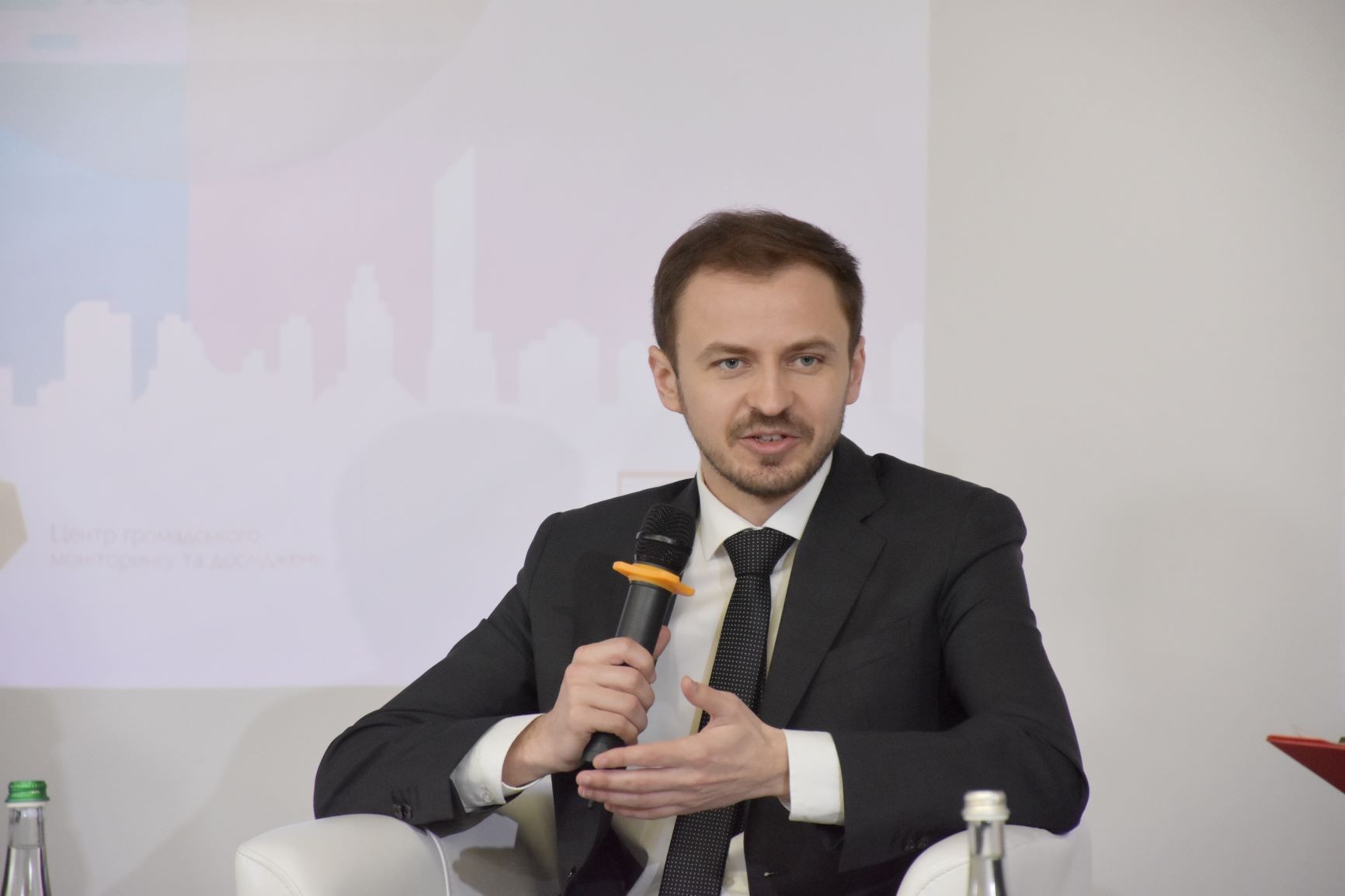Cities are changing. Every year, more and more municipalities are becoming more open to the public. Transparent online services and procedures are being implemented, which, on the one hand, improve the work of city councils and, on the other, simplify the life of citizens.
However, such improvements do not cover all spheres in all cities. Many aspects of the city's life remain beyond the control of citizens. Transparency and accountability of local authorities remain extremely low in complex spheres such as “Housing policy.”
How to make the cooperation of the local authorities and the public more effective? And what is the role of digital transformation in these processes?
Speakers discussed these issues at the panel discussion when Transparency International presented the results of two rankings — the Transparency Ranking of 100 Largest Ukrainian Cities and the Accountability Ranking of 50 Ukrainian Cities.
Why do we mention digital transformation in the context of city transparency and accountability? The reason is that it is an indicator that lets the public define how transparent and accountable local authorities are ready to be. After all, the implementation of digital services is not only about additional benefits for citizens. This is an effective mechanism for combating corruption at the local level. The absence of complex incomprehensible mechanisms for distributing goods leaves a slight possibility for corruption. Nothing complicated!
The Ministry of Digital Transformation and the Ministry for Communities and Territories Development are implementing many programs to accelerate the digital transformation of regions. Vadym Bortnyk, Director of the Regional Digitization Directorate of the Ministry of Digital Transformation of Ukraine, has noted that the regional policy of the Ministry of Education aims to achieve a total digitalization of services. However, to make it happen, we need two crucial components – first, a high-quality internet connection, second, an increased level of digital literacy of the public.

Currently, the Directorate works closely with both regional state administrations and individual city councils. Besides, a new position of Deputy Head of Digital Transformation is being created in regional state administrations. Such positions already exist in 14 oblasts of Ukraine.
Cooperation with cities is more comprehensive. "One of the priority projects is the marketplace of best digital solutions. This simplifies the work of local councils because they can choose a ready-made solution, “test," and then implement it without wasting time and resources developing own approach. This helps the public choose the best option," explained Vadym Bortnyk.
The Ministry of Digital Development also contributes to improving horizontal and vertical dialogues with communities. Horizontal dialogue includes the cooperation of different cities, exchange of experience, and successful cases. Vertical is a dialogue between communities and state authorities. "Cities often complain that they are not heard in ministries. We want to provide two-way communication so that cities can participate in the policy-making and not just be executors," said the speaker.
Deputy Minister of Development of Communities and Territories of Ukraine Ivan Lukeria has noted that such tools as City Transparency and Accountability Rankings are a suitable mechanism for stimulating regional development, which clearly shows city councils and their chairmen what are their weak points in the process of digital solutions implementation and what indicators should be focused on.

"The speed of digitalization of communities varies in Ukraine. That is why we need comprehensive efforts of the Ministry of Regional Development, the Ministry of Digital Development, and local self-government bodies to reach a digitalization level of more than 90%," said the Deputy Minister.
Therefore, the Ministry of Regional Development and the Ministry of Digital Development are working on the regional strategy for digital transformation, which will be implemented in 2022. Various sources, including the State Regional Development Fund, sectoral programs, subventions, etc., will be the sources of financing to implement digital changes at the local level.
Mariupol mayor Vadym Boichenko has stressed the importance of dialogue between the state authorities, city councils, and the public. We recall that Mariupol has come out on top of the 2020 Transparency and Accountability Rankings of Ukrainian Cities. A vivid example of cooperation between state and local government in the sphere of digital transformation is the largest center for administrative services in Ukraine, which provides about 470 services and is built at the expense of the State Regional Development Fund. By the way, in Mariupol, the position of Deputy Head of Digital Transformation was created in 2015.

"By transparency, we mean services primarily. Accountability is a more complex concept that includes many executors, for example, municipal enterprises. If the mayor changes approach to managing municipal enterprises and assume that they are service providers whose customer is the community, then accountability increases. This is the only way, " said the mayor.
Denys Selin, chair of the Board of Public Control Platform, has also emphasized the importance of accountability and cooperation with the public sector. "Many indicators that are taken into account in the City Transparency Ranking concerns adopting regulatory acts. We have witnessed that norms were only on paper but not implemented. Many cities have been involved in manipulation. For example, the local government states that citizens have unhindered access to the commission meetings. Still, there are obstacles in access to those meetings, especially if they are ones of the public commissions on housing. That is why the Accountability Ranking, which determines how open to public control cities are, is important," explained Denys Selin.

When preparing the Accountability Ranking, public feedback from the Transparent Cities online platform was also taken into account.
Denys Selin has noted that the platform enables people to report problems or violations in the work of city councils. "If local self-government bodies want, they will be able to respond to complaints and correct problems reported by citizens publicly. The mayor, if desired, can find out what issues bother citizens and how professionally the city council officials respond to these appeals," said the speaker.
Olena Ogorodnik, Transparent Cities program manager, has emphasized that the Ranking results should be a starting point for local governments to develop. "Four years ago, when the Transparency Ranking was just launched, its results were also significantly worse than what we have now. The transparency score grew by almost 60%. So, it means that local governments can develop regardless of their location and population. The success also depends on the political will of local authorities and the activity of the public sector," she noted. – For our part, we are ready to provide consulting support, expert recommendations and highlight the very points of challenge that a city should work on first."

She has also said that developing a dialogue with the public is one of the program's priorities for this year. "We plan to involve more and more active citizens, representatives of civil society organizations, so that they will help determine how cities live and what are the biggest gaps between the local authorities` openness on paper and in reality," Olena Ogorodnik summed up.
That is why we invite representatives of local authorities, civil society organizations, and active citizens to register on the online platform https://transparentcities.in.ua/en.
CSOs can moderate and publish feedback from the community in their personal profiles. Local platform representatives will also be certified.
Local self-government representatives will be able to create personal profiles to respond to feedback and rapidly communicate with the residents. City councils also have access to templates of regulatory documents and educational materials.
The presentation of the results of the City Transparency and Accountability Rankings 2020 and a panel discussion was organized within the project “Transparent Cities e-platform for the cooperation of citizens and local governments for accountability and good governance” funded by the EU Delegation to Ukraine.